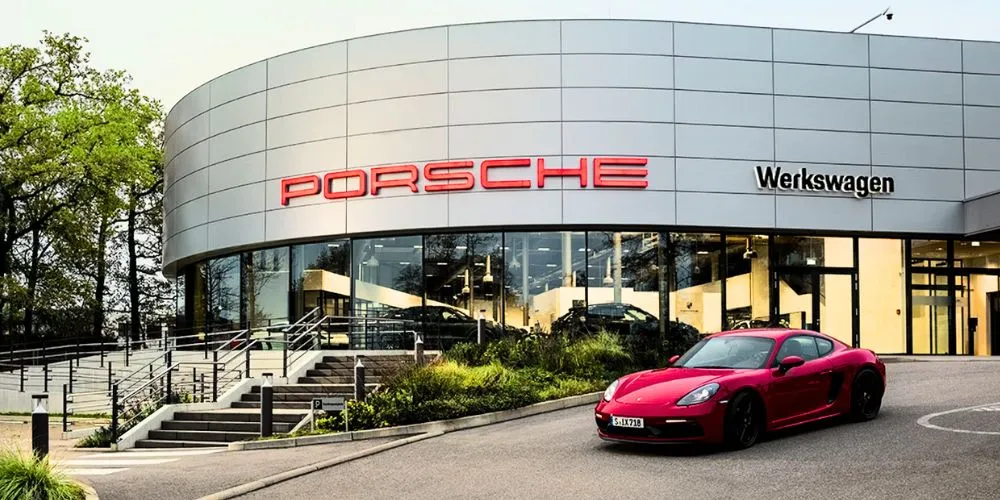Key Points
- Porsche is experiencing declining sales, reduced earnings, and executive shakeups. The U.S. is now its largest market but relies entirely on imports.
- New U.S. tariffs on EU car imports could force Porsche to consider local production.
- Porsche’s return on sales is expected to drop to 10%, leading to a stock decline.
- Analysts predict that higher tariffs could wipe out €2.1 billion in earnings for German automakers.
Porsche AG is struggling with declining sales, falling earnings, and internal management shakeups, all while facing potential new tariffs from former U.S. President Donald Trump. The German automaker, which has seen steady growth in the U.S. over the past 15 years, now finds itself in a difficult position as tariffs on European Union car imports are expected to rise.
The U.S. recently overtook China as Porsche’s largest market, but the company relies entirely on imports, making it particularly vulnerable to increased levies. If tariffs exceed 10%, Porsche may have to consider shifting some SUV production to the U.S. However, this would be a costly and complex process.
CEO Oliver Blume faces mounting financial pressure, with Porsche’s return on sales projected to drop to 10% this year—half of its long-term target. This bleak outlook has caused Porsche’s stock to plummet by 7%, reaching its lowest point since its 2022 IPO. The company’s market value has now fallen below €51 billion ($52.4 billion), less than half of its peak valuation in 2023.
Compounding its challenges, Porsche announced an €800 million financial hit related to expanding its combustion engine and plug-in hybrid lineup. The brand’s first fully electric model, the Taycan, initially performed well after its 2020 release but struggled with sales last year. Meanwhile, the electric Macan SUV, launched after significant delays, has failed to generate strong demand.
Trump has warned of imminent tariffs, stating on February 2 that he intends to take action against European automakers. Analysts estimate that a 2.5% to 10% tariff hike could erase €2.1 billion from German automakers’ earnings. While Porsche’s high-end 911 models could absorb price hikes, its Cayenne and Macan SUVs—accounting for over 60% of U.S. sales—may face greater competitive pressure.
Despite previous discussions about U.S. production, Porsche has hesitated due to supplier and logistical challenges. With potential tariffs, the company may have to reconsider its stance on American manufacturing to remain competitive in the U.S. market.










